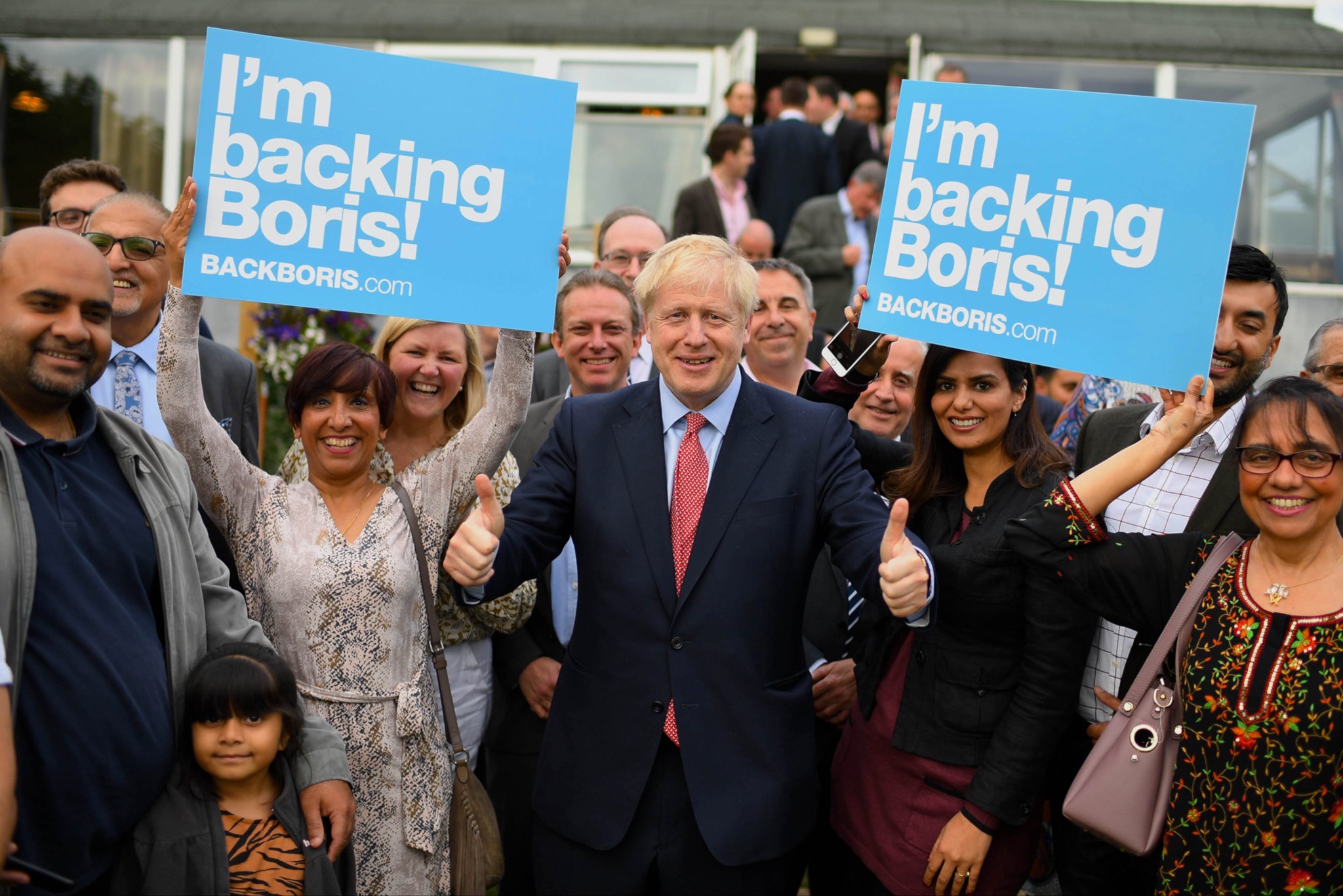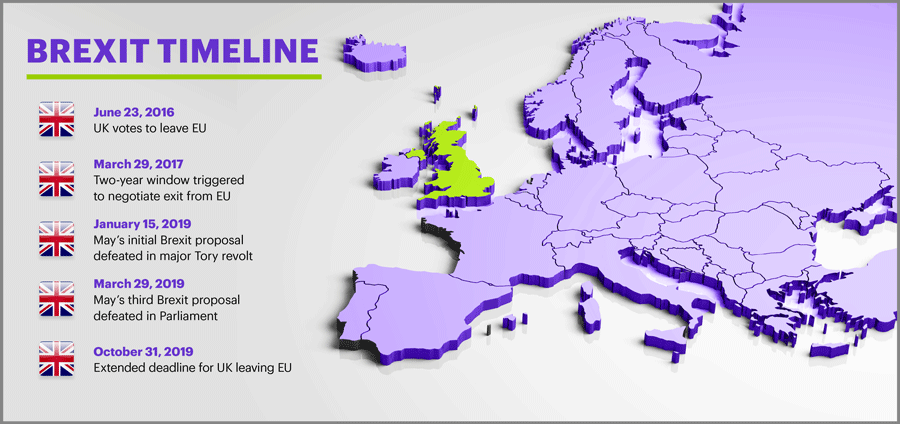
On July 23, 2019, Boris Johnson resoundingly defeated rival Jeremy Hunt, to become the leader of the United Kingdom's (UK) Conservative Party and the country's 77th prime minister. The nation's highest government seat became vacant after Theresa May, who served the role from 2016 to 2019, tendered her resignation on June 7, 2019. The 62-year-old leader stepped down after failing to garner parliamentary support for her proposal to end the UK's four-decade-long economic and political partnership with the European Union (EU) with as little disruption as possible.
The UK's exit from the EU, or Brexit as it is popularly called, was decided by the country's residents on June 23, 2016 through a special referendum. Though voting to leave the deep-rooted alliance entailed just checking a box, executing the break has been extremely challenging. Both the remaining EU members and the UK have sought to obtain the most favorable deal for their side. In January 2019, after more than two years of intense negotiations, May's government managed to reach an agreement for what they believed was the best possible exit deal for the UK. However, it failed to obtain the required majority approval from members of the parliament.

While May was adamant about striking an amicable deal before the Brexit deadline on October 31, 2019, Johnson is not convinced it is necessary. In his inaugural address to Parliament members on July 24, 2019, the 55-year-old said, "I hope that the EU will be equally ready and that they will rethink their current refusal to make any changes to the Withdrawal Agreement. If they do not, we will, of course, have to leave — the UK — without an agreement."
Many officials and economists fear that leaving the union without a transition agreement in place will result in significant disruption to both businesses and individuals. The biggest short-term impact will be felt by UK food retailers, who obtain a majority of their goods from EU partners. Multinational corporations with factories in the UK are also concerned about the long-term impact an abrupt exit will have on the British economy. Johnson and other Brexit supporters, however, believe the no-deal effects will be minimal. They assert that the EU-free UK will easily be able to strike beneficial trade deals with countries worldwide.

Another urgent task the incoming British prime minister has to tackle is convincing Scotland to not leave the UK, which comprises England, Scotland, Wales and North Ireland. Scotland's First Minister Nicola Sturgeon has already informed Johnson of her desire to start discussions about a new independence referendum. If successful, it would enable Scotland, who has been opposed to Brexit, to cut its ties with the UK and join the EU.
Johnson also has to deal with a critical international crisis. On July 4, 2019, Britain's Royal Marines seized an Iranian supertanker off the coast of Gibraltar. The ship was believed to be carrying 2 million barrels of oil to Syria, whose government is under severe EU sanctions for its role in international terrorism and domestic democratic and human rights violations. The Iranian government retaliated on July 19, 2019, by hijacking a British-flagged oil tanker that was heading to Saudi Arabia's port of Al-Jubail. While Iran has stated a willingness to swap the two captured tankers, that will only happen if the country's officials can prove their tanker was not heading to Syria. Hopefully, Britain's new prime minister will be able to resolve all the challenges rapidly.
Resources: Cnn.com, BBC.com, DailyMail.com, Vox.com, Atlanticcouncil.org
